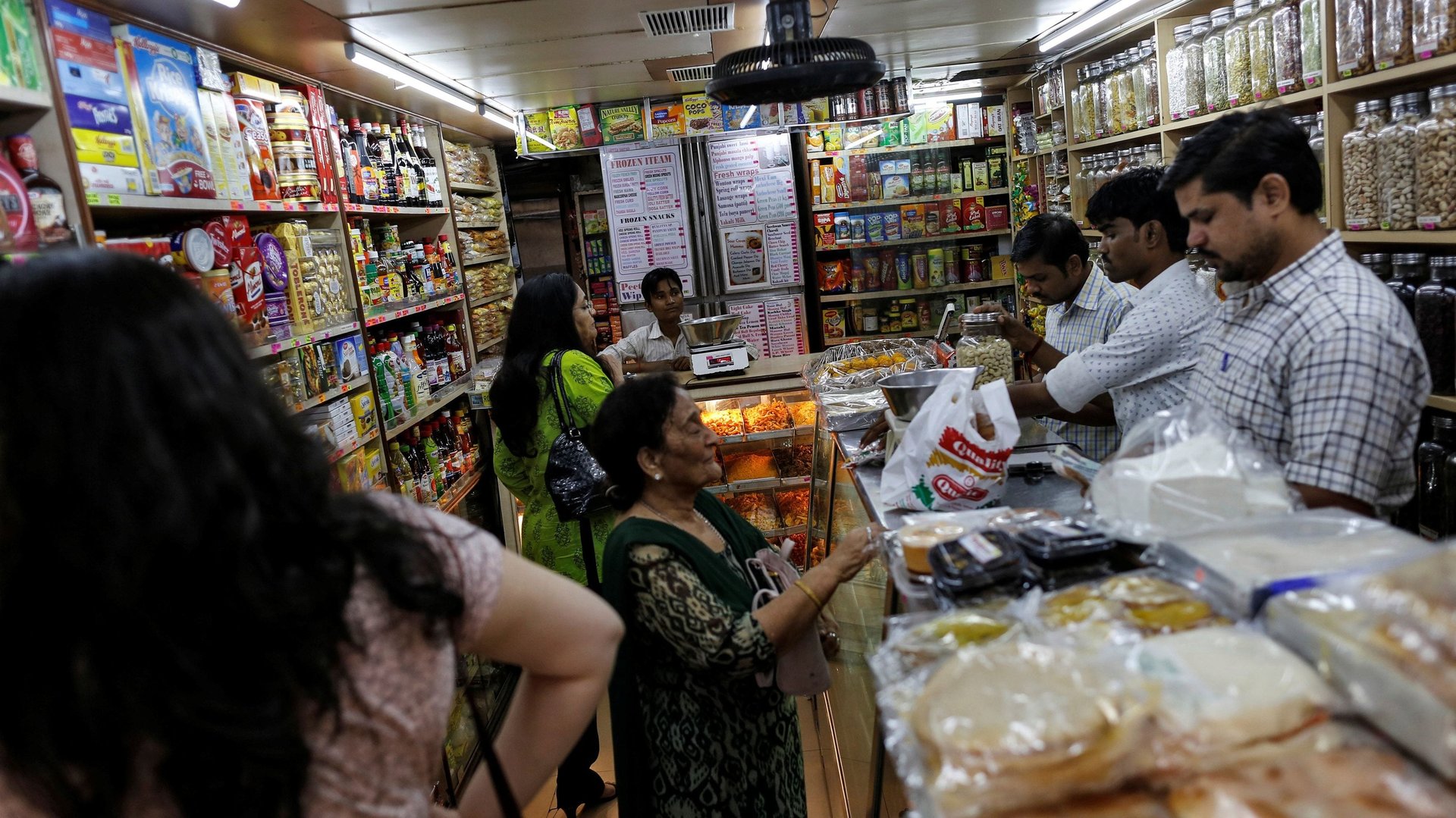Deep pockets alone can’t save the day for India’s online grocery retailers
Despite raising millions of dollars, India’s top online grocers have reasons to worry—unless they aggressively buy out rivals.


Despite raising millions of dollars, India’s top online grocers have reasons to worry—unless they aggressively buy out rivals.
The online grocery-delivery business is fairly easy to launch, which means incumbents like BigBasket and Grofers could quickly lose out if a new player were to take them on, according to an EY report.
“With low entry barriers, companies in this segment will always have a looming fear of newer players coming in,” the consulting firm’s study said. “Those who offer seamless services will carve their niche…and survive in the long run.”
The concerns are serious given the fact that several new entrants have made their way into the segment over the last year, delivering everything from groceries to medicines to milk.
On Feb. 12, food delivery unicorn Swiggy entered the hyperlocal space with Swiggy Store to deliver fresh groceries, flowers, health and supplements, organic and gourmet food, meat, and even pet-care products from neighbhourhood shops. In addition, American e-commerce major Amazon has also made inroads into the segment with its Amazon Pantry service, which is going strong despite the slight setback due to India’s new e-commerce rules.
“The existing players would look at bolstering volumes through horizontal services and adding customer touch points,” EY’s report said. “As the market expands, there will be consolidation in the segment; while there is certainly depth in the market, unit economics will be difficult to achieve beyond two or three large-scaled players.”
New versus old
BigBasket, backed by Chinese internet giant Alibaba, and Softbank-funded Grofers currently hold over half of the online grocery market share.
Their duopoly aside, it’s a segment that other companies cannot afford to miss out on. “Grocery is the largest consumer segment by far; Indians spend over 50% of their monthly income on it. It’s a must-capture space for all retailers, offline or online,” Harminder Sahni, founder and managing director of consulting firm Wazir Advisors, told the Wharton School at University of Pennsylvania. And stickiness of repeat consumers runs high in this sector.
That’s perhaps why Swiggy began flexing its muscle when it comes to making the right buys even before opening up Swiggy Stores. In December 2017, it bought gourmet food startup 48East to build on its supply capabilities. Over the last year, the Bengaluru unicorn has acquired Mumbai-based on-demand delivery startup Scootsy and milk-tech company SuprDaily.
Simply building inventory and cementing supply chains won’t be enough to maintain a stronghold. Firms that come out on top will likely use new-age technologies like artificial intelligence (AI) and machine learning (ML) for “route planning, order consolidation, estimating optimum time slots and overall servicing costs,” the report noted. Swiggy, for instance, acquired AI startup Kint.io which applies deep learning and computer vision for object recognition in videos.
Funding galore
Currently, less than 2 million Indians are placing grocery orders online, so there is room for growth. Investors see that potential and, hence, the sector is flush with funds.
The hyperlocal segment attracted the biggest share of investments—22.8% of the $7 billion or more raised across sectors—in India in 2018.
The total funding value in India’s hyperlocal segment shot up drastically in 2018 even with the number of deals staying relatively steady. This goes to show that each player in the sector has attracted hefty funding.